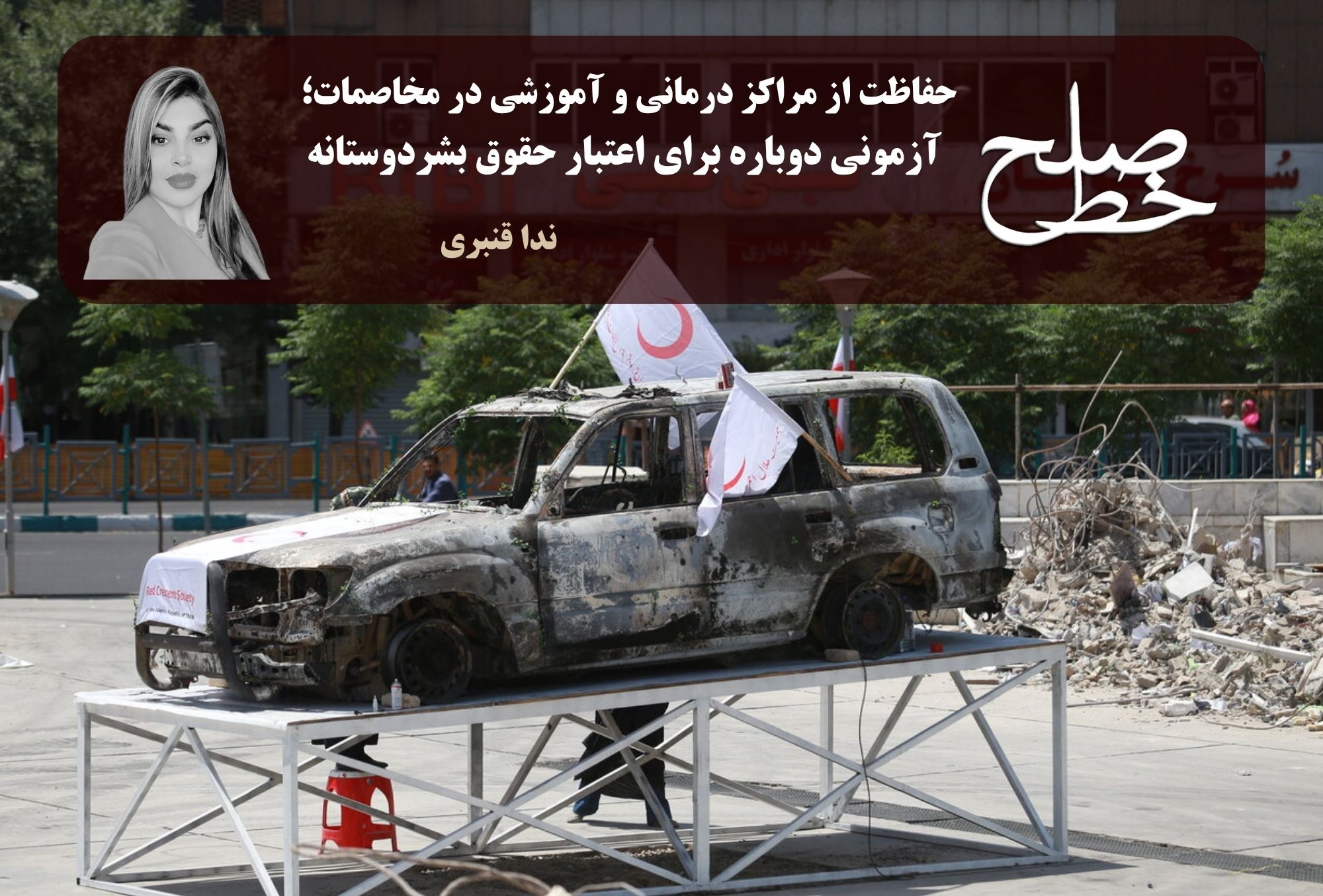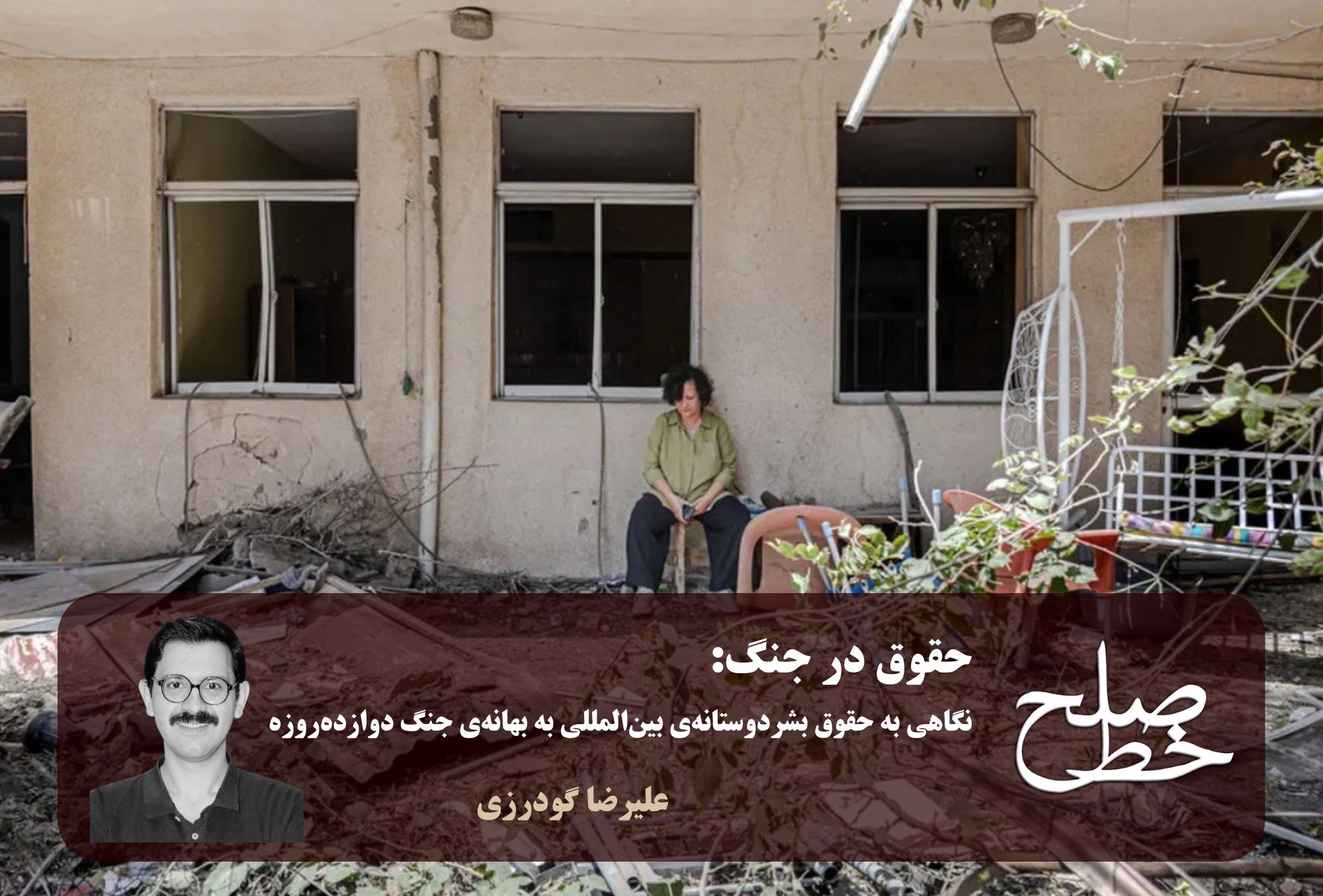The war between Iran and Israel.

Mohammad Hossein Saket, Former Supreme Court Judge and Justice: “You Cannot Defend Justice with an Axe”/ Pedram Tahsini
Mohammad Hossein Saket is a retired judge, former justice of the Supreme Court of Iran, university professor, and practicing attorney. He has authored works in the fields of law and Islamic studies, including books and articles on legal procedures in Islamic law, a historical perspective on the philosophy of law, legal theory, legal advocacy, and […]...
Read More Created By:
Padram Tahsini
Created By:
Padram Tahsini
Attack on Prisons During Wartime: Solution or Tragedy?/ Majid Shia Ali
There is precedent in modern military history for air assaults on prisons. In some cases, such incidents result from operational errors or misfires during broader military campaigns. One of the most tragic examples occurred in May 1999, when NATO launched strikes in response to the Serbian army’s ethnic repression of Kosovar Albanians. Among the multiple […]...
Read More Created By:
Majid Shia’ali
Created By:
Majid Shia’ali
Espionage: The Regime’s Worn-Out Tool to Silence Dissent/ Reza Alijani
Onstage and Behind the Scenes of the Ratification of Article Nine of the Constitution Article 9 of the Constitution of the Islamic Republic of Iran states: “In the Islamic Republic of Iran, freedom, independence, unity, and the territorial integrity of the country are inseparable, and preserving them is the duty of the government and all […]...
Read More Created By:
Reza Alijani
Created By:
Reza Alijani
Revisiting the Role of the Media in the Twelve-Day War/ Mina Javani
In times of crisis—particularly within the context of military conflicts—the media move beyond their conventional role as mere transmitters of information. They become active agents in shaping public opinion, constructing dominant narratives, and organizing collective emotions. The twelve-day war between Iran and Israel once again demonstrated that the battlefield is not confined to weaponry and […]...
Read More Created By:
Mina Javani
Created By:
Mina Javani
Children’s Rights in Armed Conflicts: An Examination of the Twelve-Day War Between Iran and Israel/ Abouzar Zaman
The twelve-day war between Iran and Israel was a short-term armed conflict that caused devastating physical, psychological, and financial harm to civilians. Of particular importance is an examination of the rights of children—the most vulnerable group in society—who were directly affected by this war, as well as the responsibilities of governments in this regard. These […]...
Read More Created By:
Abouzar Zaman
Created By:
Abouzar Zaman
The Twelve-Day War and Unprotected Civilians in Iran/ Sina Yousefi
Following the twelve-day conflict between the Islamic Republic of Iran and the State of Israel, the issue of civilian protection during armed conflict—one of the fundamental and imperative principles of international humanitarian law—has gained renewed urgency and relevance. The nature of modern warfare, often marked by aerial and missile attacks on urban areas, places civilian […]...
Read More Created By:
Sina Yousefi
Created By:
Sina Yousefi
Lived Experience of Iranians During the Twelve-Day War/ Pardis Parsa
In the early hours of June 12, 2025 (23 Khordad 1404), with the launch of Israeli airstrikes on Iranian soil, a new chapter in Iran’s contemporary history was opened. The deafening sounds of explosions and reports of military commanders and nuclear scientists being killed were the signs of a war that quickly surpassed military confrontation, […]...
Read More Created By:
Pardis Parsa
Created By:
Pardis Parsa
The Illusion of War’s End and Security: Citizens Still on the Battlefield/ Elaheh Amani
The devastating twelve-day war, which temporarily ended after claiming the lives of 1,190 people and injuring more than 4,475 in Iran (1), once again brings to mind a quote often attributed to Plato: in societies where political power rests in the hands of authoritarian rulers, even after a military war ends, the living continue to […]...
Read More Created By:
Elahe Amani
Created By:
Elahe Amani
When the Twelve-Day War Reached the Internet/ Fereshteh Goli
In today’s world, the internet has a clear meaning: a tool for fast, direct, and uncensored communication among people, with access to firsthand news and information—even if that information is sometimes incorrect or misleading. In any case, the right to access the internet is recognized in international law as part of fundamental human rights and […]...
Read More Created By:
Fereshteh Goli
Created By:
Fereshteh Goli
Protection of Medical and Educational Facilities in Armed Conflicts: A Renewed Test for the Credibility of Humanitarian Law/ Neda Ghanbari
Amid the recent twelve-day war, which unfolded along the lines of escalating security tensions between Iran and Israel, one of its most shocking dimensions was the attack on civilian infrastructure—particularly medical centers and emergency bases. Part of these assaults, unfortunately, directly targeted the fundamental right to access healthcare. According to reports published in July 2025 […]...
Read More Created By:
Neda Ghanbari
Created By:
Neda Ghanbari
A Report on the Destruction of Hospitals in the Twelve-Day War/ Azar Taherabadi
In the gray and devastated grounds of Farabi Neuropsychiatric Hospital in Kermanshah, the marks of explosions still remain on the walls. The smell of burned medications, broken equipment, and the vague, constant sound of silence envelop the atmosphere of this medical center. Three days after the war between Iran and Israel began, on June 15 […]...
Read More Created By:
Azar Taherabad
Created By:
Azar Taherabad
A Look at International Humanitarian Law on the Occasion of the Twelve-Day War/ Alireza Goodarzi
War begins when law ends. The epitome of lawlessness is the killing of another human being, and that is the goal of war. If legal solutions worked, there would be no need for war. Yet for centuries we have tried to regulate even this unlawful phenomenon. Examples of wartime restrictions can be seen throughout history. […]...
Read More Created By:
Alireza Goodarzi
Created By:
Alireza Goodarzi